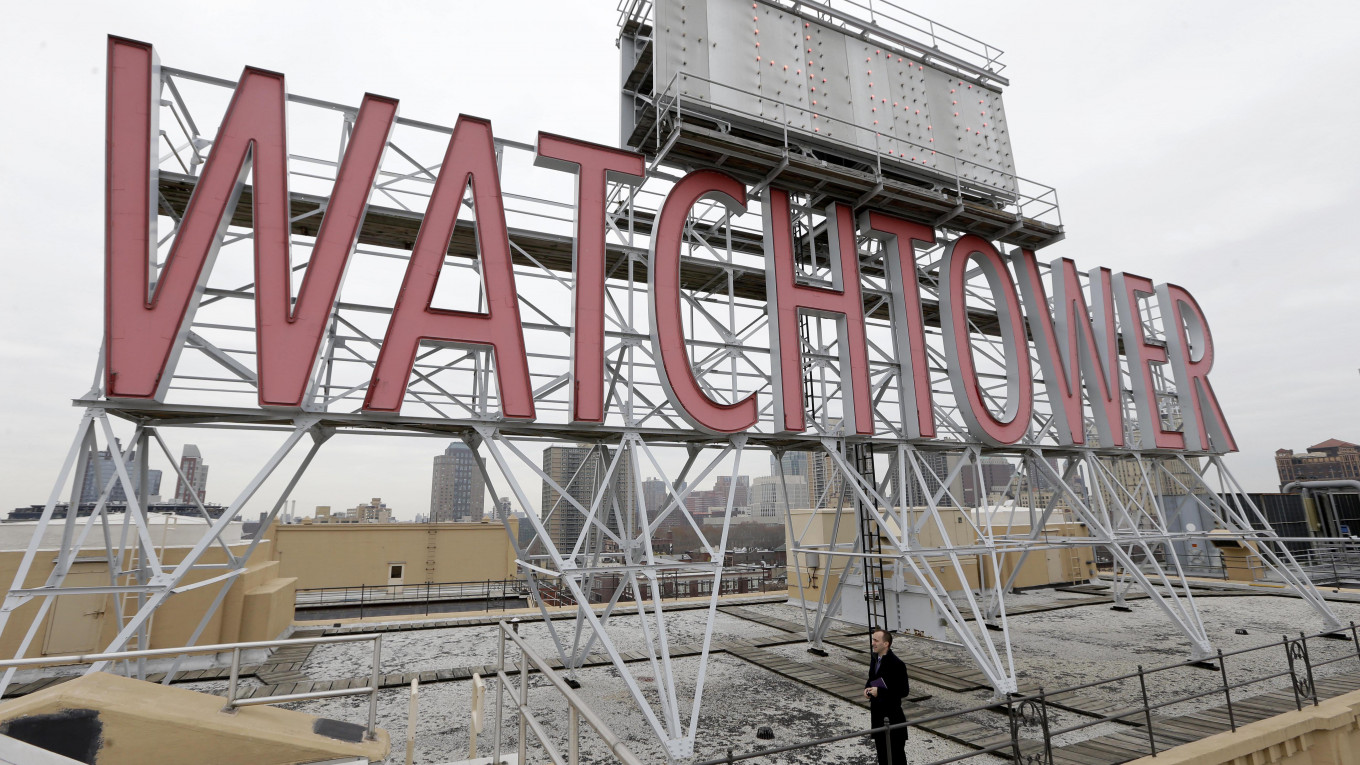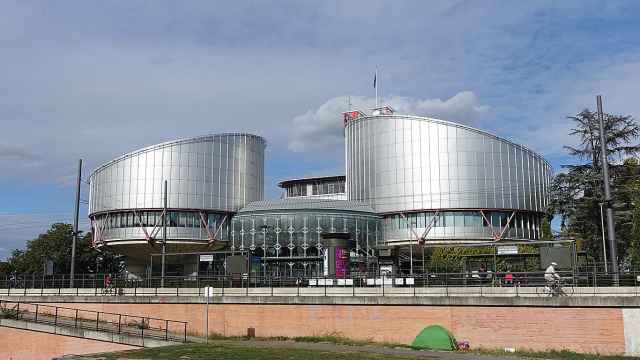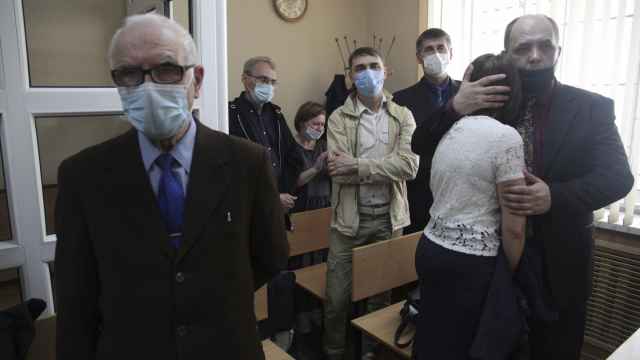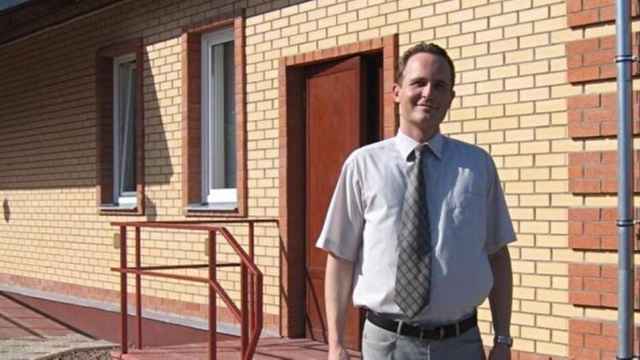When Jehovah's Witnesses arrived at the Russian Supreme Court on Wednesday morning, crowds lined the streets. Dozens of people waited in the cold for hours, hoping for a chance to get into the courtroom. State television described the crowds as supporters of the Jehovah's Witnesses, and one outlet claimed the group often targeted Russia's youth as potential converts.
But the crowd hadn't come to fight for Russia's religious freedom. Most of the people lined up were students from Moscow State Linguistic University, and they'd been promised a field trip, where they expected to learn about the Russian court system, sitting in on a real trial.
Students Kira and Alina (not their real names) said they were looking forward to being inside the court. “When else would I get an opportunity to see justice in action?” Kira told The Moscow Times.
Both women had been invited a few days earlier, when a man they'd never seen before interrupted a lecture to invite students to the trial.
The man said he needed 30 people from the department to show up outside the Supreme Court, early in the morning. He warned students to dress “nicely,” not to take pictures in court, not to post anything on social networks, and not to talk to the press.
“It sounded a bit bizarre,” admitted Ruslan (not his real name), another student who agreed to attend the hearing.
“In the end, we figured that it would normal, for this kind of thing,” Alina explained.
The students arrived at the courthouse early the next morning, only to find themselves waiting in line with dozens of students from other departments, as well as some older visitors. They'd been told to arrive at 8:00 a.m., though the hearing didn't start until 10:00 a.m.
“We were baffled,” Kira said.
Tempers frayed when the crowd was told that the courtroom was already full, before the hearing even started.
“One of our professors went with us. He was appalled, too. He didn't know it would turn out the way it did,” Kira said. Cold and disappointed, the students left and went on with their day, only to discover later in the afternoon that they'd actually made headlines.
The state-run news agency RIA Novosti described the students as “a huge line of Jehovah's Witnesses.”
The television network NTV ran a similar story, as did Channel 5, even including close-ups of the students' faces.
None of the journalists had talked to them in person, the students said.
Instructed not to give interviews, they had ignored questions from Russia's state-funded Channel 5. “[The correspondents] were asking us whether we would comment,” Alina told The Moscow Times. “We kept silent and just turned away.”
“I saw my face in a close-up shot on Channel 5,” said Eldar (not his real name), an Azeri student who also went to the court. “I felt so much rage — being called something I am not!”
An official spokesperson for the Jehovah's Witnesses also confirmed that a large number of those waiting outside the Supreme Court had not been members of their organization.
Yaroslav Sivulsky, a spokesperson for Jehovah's Witnesses in Russia, said the crowd size had surprised him. “Some of our supporters were outside, but of course the whole crowd couldn't come in. The courtroom was full,” he said. “We didn't know who they were, but later someone told me that they had come from a university.”
The incident left many of the students confused and angry.
“It still isn't clear why someone needed to gather us in front of the court,” Ivan said. “The dean of our faculty is surprised and appalled. He told me that the university rector asked him to send students to the court for educational purposes.”
Ivan also stressed that Moscow State Linguistic University has never been involved in politics, explaining that students have never been forced to attend patriotic or pro-Kremlin events, and — unlike many other universities across the country — no faculty reprimanded students for attending anti-corruption rallies on March 26.
The university's students have their own theories about why they were sent to the courthouse. “Maybe they wanted us to occupy seats in the courtroom in order [to stop] actual supporters from getting in,” Alina suggested.
Neither the university, Channel 5, nor NTV responded to requests for clarification about this story.
A spokesperson for RIA Novosti told The Moscow Times that they used information from the court to describe the number of Jehovah's Witnesses at the trial. The news outlet did not specify where the information about a “large line of supporters” in front of the courthouse had been obtained.
Alexander Verkhovsky, director of the Moscow SOVA Center, which monitors abuses of anti-extremism legislation, says the government and Russia's state-backed media had no political reason to attack Jehovah’s Witnesses, but both were keen to portray the group as a cult.
“This escalation is the result of three factors: anti-Westernism or anti-Americanism, personal prejudices among the higher-ups in the FSB, and anti-cultism. They want Russian people to view them as a cult. That's why the Russian Justice Ministry spoke about the organization’s ban on blood transfusions at length [during the trial].”
Within the next week, Russia’s Supreme Court is expected to rule on whether to classify Jehovah’s Witnesses as an “extremist organization,” banning the group entirely inside Russia.
Both the U.S. government and the United Nations have condemned the trial as a misuse of Russia's anti-terrorist legislation.
A Message from The Moscow Times:
Dear readers,
We are facing unprecedented challenges. Russia's Prosecutor General's Office has designated The Moscow Times as an "undesirable" organization, criminalizing our work and putting our staff at risk of prosecution. This follows our earlier unjust labeling as a "foreign agent."
These actions are direct attempts to silence independent journalism in Russia. The authorities claim our work "discredits the decisions of the Russian leadership." We see things differently: we strive to provide accurate, unbiased reporting on Russia.
We, the journalists of The Moscow Times, refuse to be silenced. But to continue our work, we need your help.
Your support, no matter how small, makes a world of difference. If you can, please support us monthly starting from just $2. It's quick to set up, and every contribution makes a significant impact.
By supporting The Moscow Times, you're defending open, independent journalism in the face of repression. Thank you for standing with us.
Remind me later.







